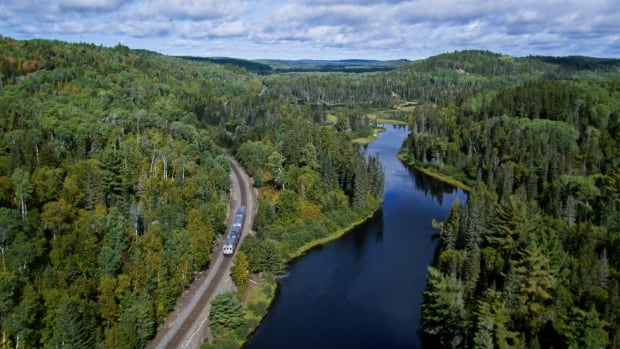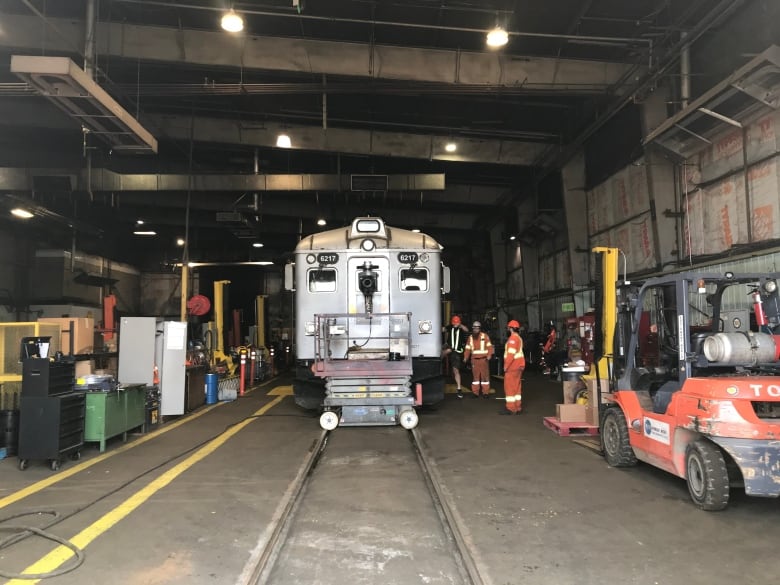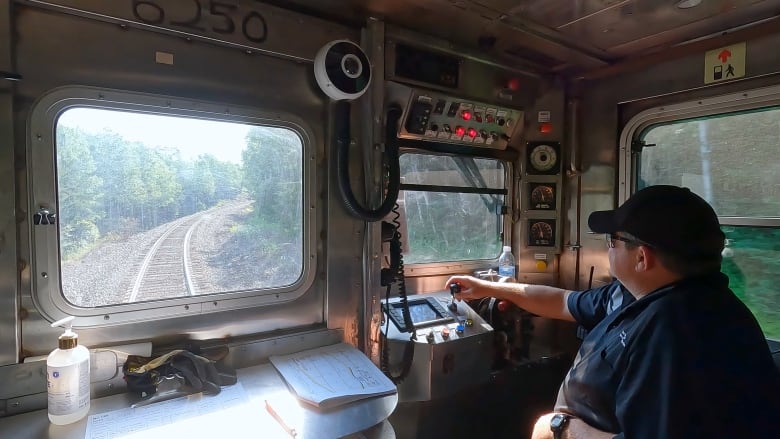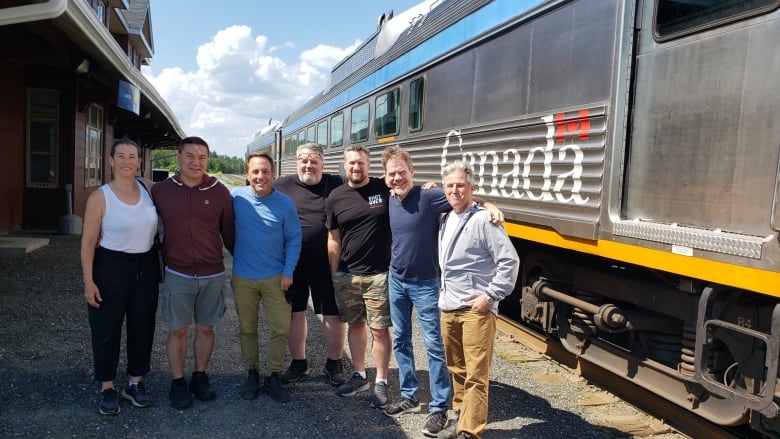
Morning North8:26Take a one-of-a-kind train trip across the north – virtually
Soon, you’ll be able to virtually ride a unique train across northern Ontario from the comfort of home. Reporter Warren Schlote talks with the film’s executive producer, Mitch Azaria.
When Via Rail Canada’s Budd car eases to a stop in the northern Ontario wilderness, it’s anyone’s guess what will come out of the baggage car — a half-dozen canoes, a fishing lodge’s bait supply for the week or even a badly needed new appliance for a bush camp.
Those scenes and more take the focus in an upcoming documentary that features one of the most unique train services in Canada.Tripping Train 185 brings viewers on a trip between Sudbury and White River, Ont., taking inspiration from a unique slow-TV format that’s gaining global popularity.
Tripping Train 185 is the fourth instalment in TVO’s Tripping series, which brings people on a real-time journey in various parts of Ontario. There’s no music, no narration — just natural sounds and occasional text pop-ups or animations for historical context.
The film features Via Rail Canada’s flag-stop Budd car service. It stretches for about 480 kilometres through the wilderness, with only a handful of communities along the line. The route only meets a handful of forest access roads along its length, with crossings as far as 55 kilometres apart.
It’s unlike anything you can imagine being on a train. What you get to see is terrific.— Mitch Azaria, executive producer
“Train 185, I think, is Ontario’s, maybe Canada’s best kept secret,” said Mitch Azaria, executive producer of Good Earth Productions, which made the film.
Tripping Train 185 premieres April 7 at 7 p.m. on TVO.
For some, the train route is the only land access they have to the rest of the country from the heart of northern Ontario. The train makes “flag stops” anywhere on the line for both pickups and dropoffs, based on passenger needs.
Train 185’s combination of a remote flag-stop service and its seven-decade-old equipment makes it one of a kind on the continent. It usually runs a set of two or three Budd Rail diesel cars, which are essentially a locomotive and a railcar combined into one compact unit.

The Budd company made about 400 of them between the 1940s and 1960s, but only a handful are in active service in North America.
“The train’s historic,” said Azaria, saying the trip takes riders “back in time.”
An immersive film
Azaria and his team filmed this documentary over a few trips, including one segment during a winter storm. The film offers an engineer’s point of view, along with aerial shots of the train gliding through the wilderness.
There are scenes of the crew loading the baggage car and footage from the ground as people disappear with their canoes — and even a newly delivered barbecue — in tow.
There’s also an animation of a school car, which used to offer education to children living far from towns.
The documentary takes cues from a Norwegian filmmaking style known as slow television. These productions show their subjects in real time, often spanning several hours or even days. One production, in 2013, aired for more than two weeks straight.

Azaria said he thinks of his series as “immersive” television, since his films are edited down from the full length of the original actions. Tripping Train 185, for instance, shows three hours of the train’s seven-hour journey, including scenes from crew-only parts of the train.
“It’s unlike anything you can imagine being on a train. What you get to see is terrific,” Azaria said.
The first film in the Tripping series was a four-hour ride on the Rideau Canal in a vintage wooden motorboat. The next two were three hours in length, featuring a hawk’s eye view over the Niagara River and a sailboat trip up the Bruce Peninsula.
Azaria said he hopes his film will inspire people to take this train trip.
The original Tripping film on the Rideau Canal drew a premiere-night audience of 1.2 million people, according to TVO.

He said he wants to see more people using the service, especially since the future of the train itself is uncertain.
Via Rail scrapped its only other Budd car route, on Vancouver Island, in 2011. That company has also begun major investigations into the crashworthiness of its Budd stainless steel passenger coaches.
A similar remote, flag-stop train on the former Algoma Central Railway shut down in 2015.
Via Rail’s Sudbury to White River service runs three round trips each week.

